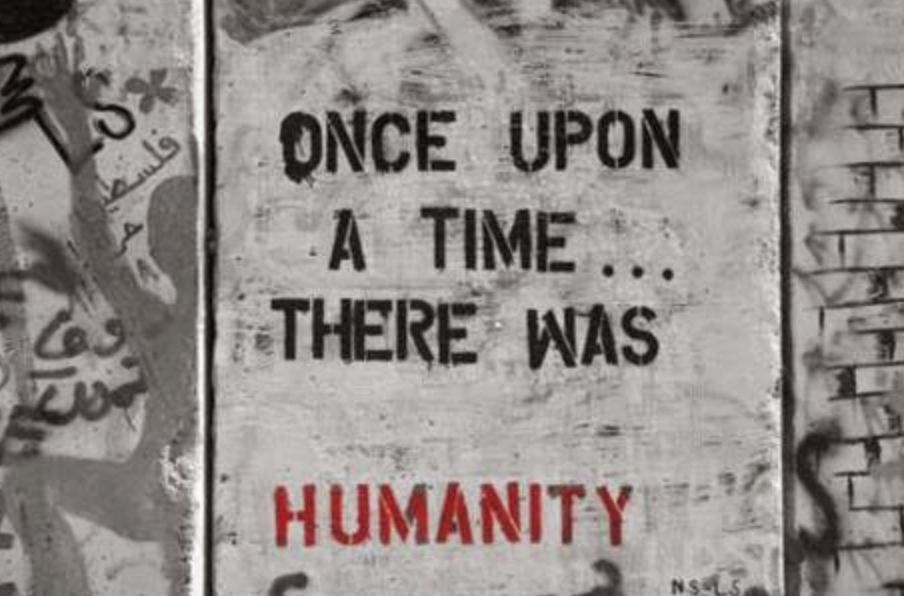There was a time in the addiction treatment industry when marketing referrals were the status quo. This was before greed set in. But it was there, and it was real, and a lot of people want to forget that it was the norm. But that doesn’t change reality.
Perception may be “reality” to the perceiver, but reality doesn’t change. You can’t rewrite history.
This was four years ago and more, before the industry became the money-making machine it has become. Marketing for treatment programs was not a known science. Sure, there was always the amazing Betty Ford Center, but sound addiction treatment programs were few and far between…and relatively unknown.
The crisis, the epidemic, the desperate and real need to save hundreds of lives every single day was not yet apparent or acknowledged.
Families were not sharing that their loved one was in “rehab”; it was a secret, something we didn’t share. And since treatment programs were also under the radar, finding a program for your loved one was difficult. You had to know someone who knew someone.
Let’s face it. The Yellow Pages were not the best resource.
So where to turn? The people who best knew the industry were the people who had benefited from it. A majority of early addiction treatment marketers/referral specialists were persons in recovery. They cared. They had been there, done that, and knew how important the right program would be to someone battling addiction or alcoholism. They knew how important it had been to them. And so they spent time doing their homework, learning about treatment programs, asking questions to determine quality of care, treatment modalities, and client prioritization. And they stayed away from the few “bad” programs in the world of addiction treatment.
Treatment programs were grateful. They recognized the work being done on their behalf and they offered compensation. Sometimes it was a monthly retainer, sometimes it was a full time position at their program, sometimes it was a referral fee. Whatever was offered, these early referral specialists worked hard to help families and individuals who were confused and without experience, but needed addiction treatment guidance. And they carefully suggested multiple options for treatment that matched the client’s needs, sometimes through programs they worked with, sometimes not. They were client-focused.
These were referral specialists as they should be. Ethical marketers.
And then greed set in. Fees became competitive. Treatment programs offered more money to “outbid” their competitors for clients. Referral specialists – SOME referral specialists – lost sight of the real reason they started helping families and individuals. They forgot that saving lives was their motive. They moved their focus to the newfound ability to make A LOT of money, very quickly…and started sending clients to the highest bidder, and even stopped vetting programs. The only thing that mattered to this new evolution of marketer was the amount of money they would receive for sending a client to a particular program.
And tragically, a new breed of marketers and treatment program owners was born – the unethical kind.
Patient brokering ripped the heart out of ethical marketing, stole the souls of many program owners, and replaced ethical, top-notch client care, which in the end eroded trust, removed hope, and stole lives.
As the need for addiction treatment increased, and more clients asked for help, treatment programs found themselves constantly competing with new treatment programs – new programs that were paying more for client leads. They were literally popping up in every neighborhood and community by the dozens.
The word was out. This was a fast moving, money making business.
And in the addiction treatment industry, as in any industry, the opportunity to make fast money in large quantities attracted every type of person. The important difference between the addiction treatment industry and most other industries is that lives are at stake. And sadly, not everyone cared or cares. The unethical marketers who didn’t care sent their clients to the highest bidder, then moved them again and again from treatment program to treatment program, collecting a fee each time. They became body brokers. Unethical and uncaring treatment program owners accepted clients for the few highest billable days (through insurance), then booted them for a new client with high billable days. And repeat.
Client care plummeted. Bank accounts soared. Lives were lost.
And that brings us to today. With an industry determined to end the epidemic, to halt the crisis, to save lives. But also an industry still riddled with unethical owners and marketers. How can we fix this?
Thankfully, the hearts and passion of a majority of those in the addiction treatment industry still focus on the client first. And we are in many ways a self-regulating machine. If unethical practices are happening, we simply don’t use that person or that program, and over time, word spreads and they will disappear. In addition, legislation and legal action is corralling the worst of the worst and sending them off to prison.
And then there are the innocents.
When there is a high level of corruption in any industry, but especially an industry focused on saving lives – where lives are literally at stake every single minute of every single day – everyone becomes suspect. And that’s fine, if we remember that the innocents should be considered innocent until proven guilty; unfortunately that’s not always the case and the innocents are targeted and publicly called out as if they are guilty. And that’s just not fair. And in the end, it’s totally counter productive, potentially hurting a program or individual that is saving lives and marketing or helping ethically.
Industry-wide, there have undoubtedly been many times a client was sent to a program thought to be stellar, only to find out later that in recent times unethical practices became the norm.
Industry-wide, there have undoubtedly been many who were marketing effectively and honorably for contracted fees, only to have to face the reality that those fees are now considered unethical due to the widespread abuse of this marketing style in the form of unacceptable patient brokering.
Industry-wide, we are watching each other carefully.
And when done right, this kind of self-monitoring is the best thing we can do. But when innocents are accused publicly based on hearsay we have taken our efforts too far. The pendulum has swung way too far and needs to settle back a bit.
It’s time for ethical behavior to be the standard, not the exception.
It’s time for ethics done right. It’s time for innocence until proven guilty. It’s time for vigilance along with respect and honor.
No one person is THE authority on ethics. No single person’s “endorsement” is valid.
We have a mess in the addiction treatment industry and we ALL need to chip in to clean it up. Or once again, we will have an unethical situation, just a different kind.
So, let’s restore respect to the addiction treatment industry and restore hope to those seeking our help.
The people seeking help are fighting for their lives. They need to be able to trust those of us working in and with the addiction treatment industry. Let’s make certain they can.
Let’s put client’s first. Let’s work ethically to connect programs to clients. Let’s admit that compensation for a job done correctly is not something to be ashamed of. Let’s regain our focus and do things right.
There was a time this industry was respected. Let’s make it so again.
Let’s not hold the norm of marketing from five years ago against someone who left it behind once the practice was considered questionable.
Let’s not judge so quickly and pronounce verbal sentencing on those who have chosen ethics over once accepted business norms.
Just like addiction and recovery, everyone deserves a second chance. People learn, grow and change. Let’s applaud these changes and acknowledge them.
There was a time addiction treatment and recovery was about second chances. Let’s make it so again. We are about recovery. We are about saving lives. Let’s regain our focus and move forward, ethically, respectfully and honorably. People are counting on us.
Jean Krisle is a motivational keynote speaker, extraordinary fast-lane leader, and the CEO/Founder of 10,000 Beds, Inc. a 501c3 nonprofit organization. The mission of 10,000 Beds is to connect those seeking help for addiction to those who are willing to help by providing addiction treatment scholarships.
Jean connects with audiences to provide inspiration to leaders, clients, teams and organizations. She focuses on fast-lane leadership – a compilation of proven steps to taking the FastLane2Success and the reality of success often following failure. Her popular Keynote Presentation “Failing2Win: The Paradox of Success” instantly engages the audience with identifiable stories and experiences with a strong call to action as she challenges her audience participants to push themselves harder and higher.
Jean and her husband Hal have spent much of 2017 and 2018 #OnTheRoad4Recovery to elevate awareness around addiction, change perceptions of recovery, and inspire fast-lane leadership. You can reach Jean at jean@10000beds.org. You can support 10,000 Beds at 10000beds.org. #onebedonelife #failing2win #fastlaneleadership #fastlaneleaders #ethicsdoneright #fastlane2success

